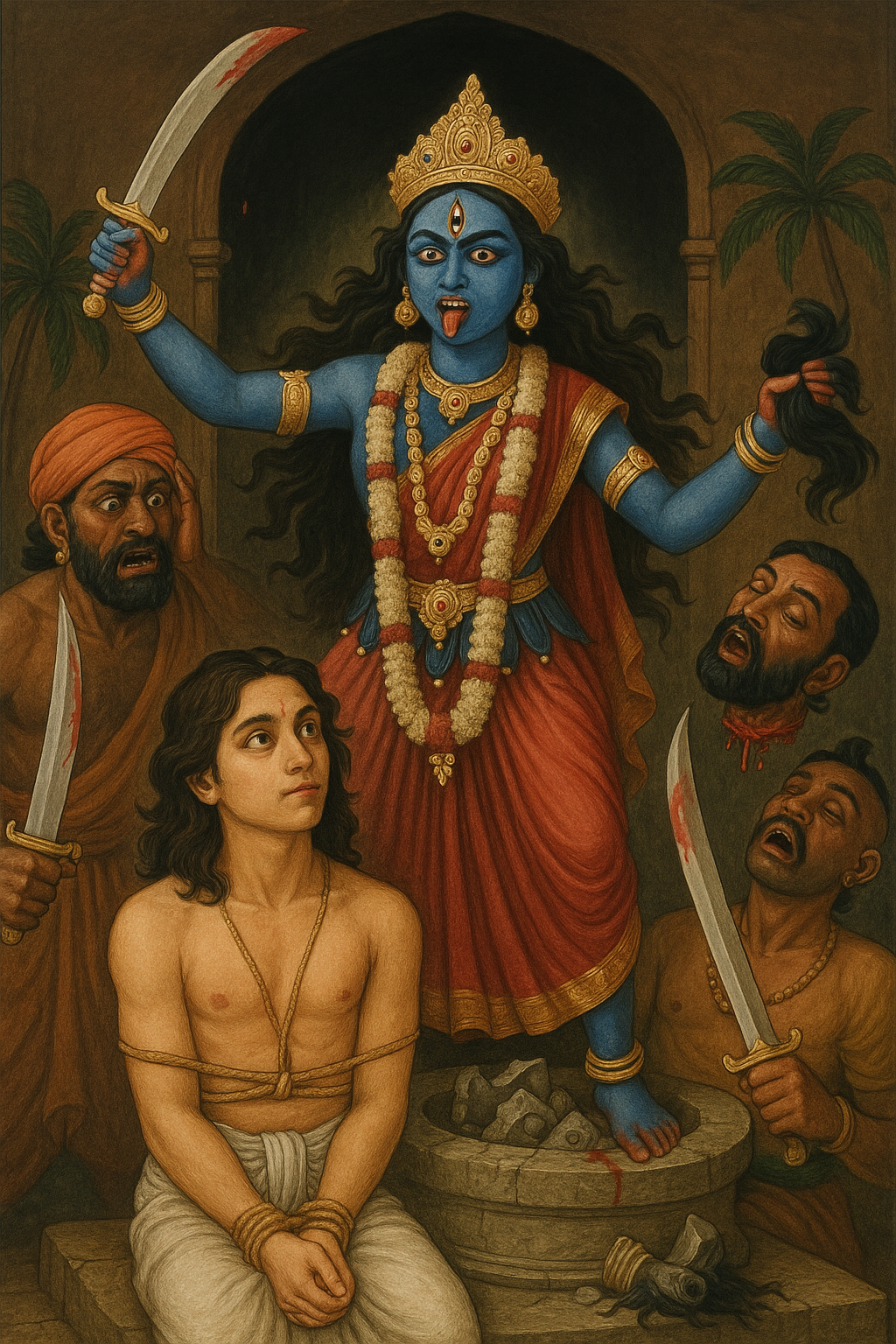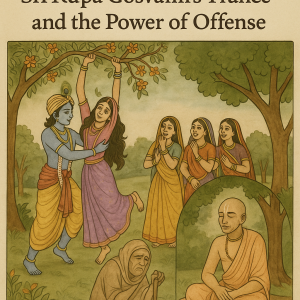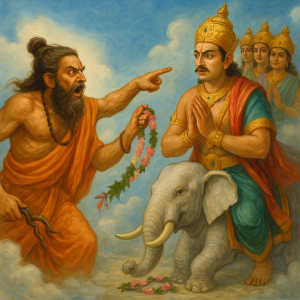From Śrīmad‑Bhāgavatam Canto 5, Chapter 9
1. Respect Turned to Cruel Mockery
Jaḍa Bharata, a pure devotee of Lord Viṣṇu, had renounced everything and lived silently in the forest. One day, a gang of thieves captured him—mistaking his detached behavior for madness—and decided to sacrifice him to Kali, hoping to gain wealth. One of them, acting as the chief priest, even readied a sharp sword and prepared to make Bharata bleed as an offering to the goddess. academia.edu+15vaniquotes.org+15vaniquotes.org+15
2. Divine Compassion Unmasked
As the thieves bound Jaḍa Bharata at Kali’s altar, carrying out their dark ritual, something extraordinary happened. The stone deity of Kali fractured, and the living goddess—known as Bhadra Kālī or Vaiṣṇavī—emerged from the idol.
Furious at the sacrilege being committed against a pure Vaiṣṇava, she severed the heads of the thieves with their own swords, in a flash of divine justice and protection. scribd.com+11srimadbhagavatamclass.com+11vedabase.io+11
3. A Great Declaration
Viśvanātha Cakravartī Ṭhākura clarifies that only low-minded individuals—those operating in the modes of passion and ignorance—would dare such a sacrilegious act. Jaḍa Bharata, who was never aggressive or selfish, was murdered simply because they mistook him for a brute. The goddess intervened to uphold righteousness. vaniquotes.org+3vaniquotes.org+3vedabase.io+3
🌿 Lessons to Be Learned
⚠️ 1. Offending Vaiṣṇavas Is Profoundly Perilous
Even in ignorance, the act of intending harm to a devotee triggered divine wrath. Protecting devotees isn’t sentimental—it’s a cosmic imperative.
🛑 2. Protection of Devotees Transcends Idols
The deity image itself couldn’t bear the impurity of the ritual and shattered. Then the living goddess incarnated to shield her devotee. Jah presence of devotees calls for divine guardianship.
🌟 3. Surrender and Silence Speak Volumes
Jaḍa Bharata was neither proud nor vindictive—his silent devotion invoked cosmic defense—a model for all devotees.
💡 4. The Line Between Devotion and Desecration
What passes for worship can become desecration if directed at or through devotees dishonestly—this story warns how easily that line is crossed.



